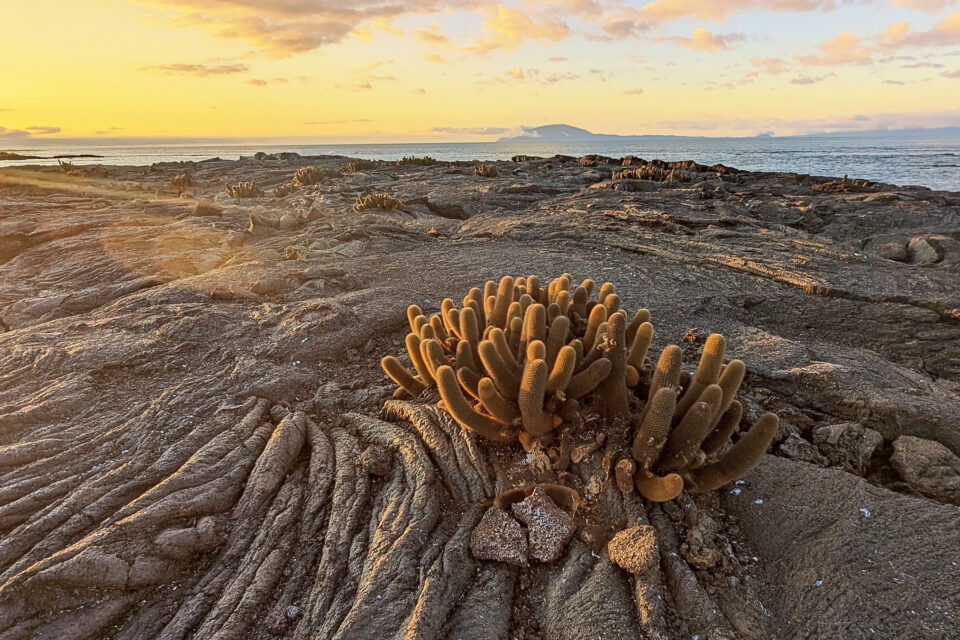

COP26: our CEO’s perspective
Our CEO, Sharon Johnson, shares her thoughts after spending a week at the UN Climate Conference (COP26) in Glasgow.
Our CEO, Sharon Johnson, shares her thoughts after spending a week at the UN Climate Conference (COP26) in Glasgow.
I’ve just returned, exhausted but exuberant after a week at COP26. I was there for the first week, and what a start to the conference it was! Progress was made on deforestation and to cut methane emissions, but the big win for Galapagos was the announcement by President Lasso of Ecuador, to expand the Galapagos Marine Reserve (GMR) with a new marine protected area (MPA) that will stretch between Galapagos and Cocos island, Costa Rica. This is something GCT and many NGOs, policy makers, scientists and others have been working towards for many years. Later in the day, the President was joined by three neighbouring Latin American Presidents who led the way in multi-lateral commitments to protect the ocean and mitigate climate change impacts. This new ‘mega-MPA’ will link waters of Ecuador, Colombia, Panama and Costa Rica to protect migratory turtles, whales and sharks from fishing fleets in an area of 500,000 km².
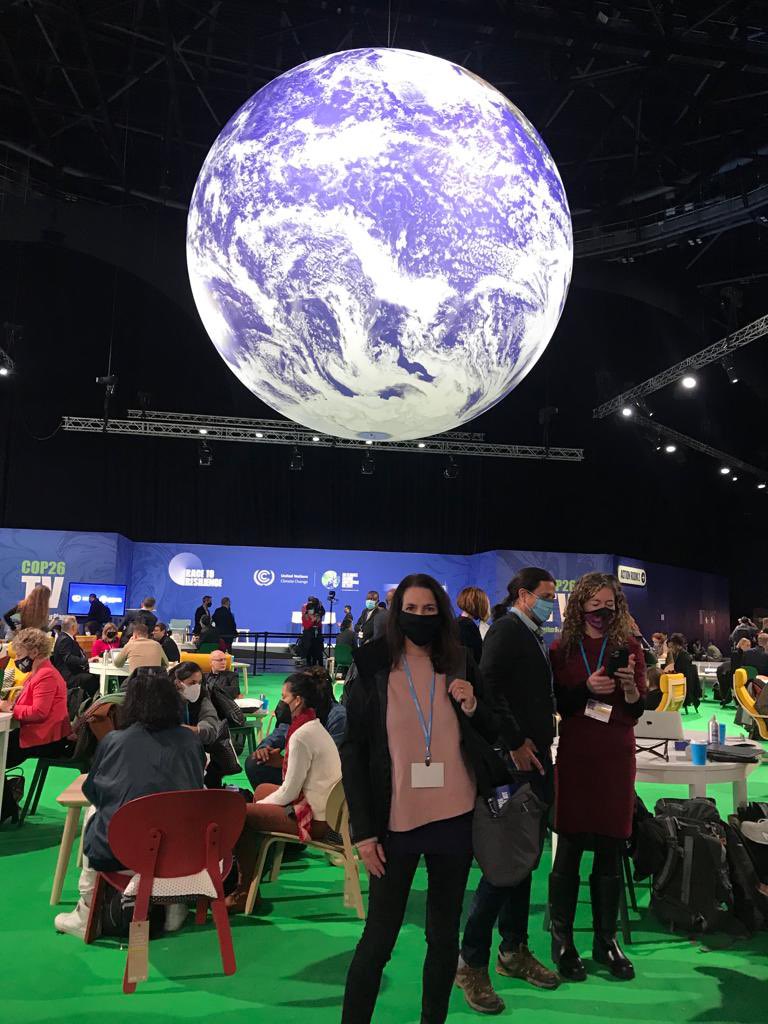
Sharon at COP26
Despite this early win, world leaders have not done nearly enough to address the climate crisis, with sea temperatures rising and increasing incidents of droughts, wildfires and flooding – we’re not going far or fast enough to beat the race to extinction. Tackling climate change requires a combination of robust scientific data, public pressure, political will, technology and behavioural change.
The expansion of the GMR is a massive leap in the right direction but our work doesn’t stop here. Action is now needed to turn these plans into effective implementation and enforcement – only then will we be sure of the protection of the endangered migratory species including sharks and turtles. These species are important in the fight against climate change as they capture carbon and enable it to be stored in the seabed. They must be protected from threats, such as pollution and illegal, unregulated, and unreported fishing. I spoke to the Ecuadorian Environment Minister, Gustavo Manrique, about what we can do to help to ensure the new MPA is managed effectively such as trialling new radar harvesting technology, that will accurately identify any fishing vessels that illegally enter the area. We will be following up on these ideas and more in the coming days and months.
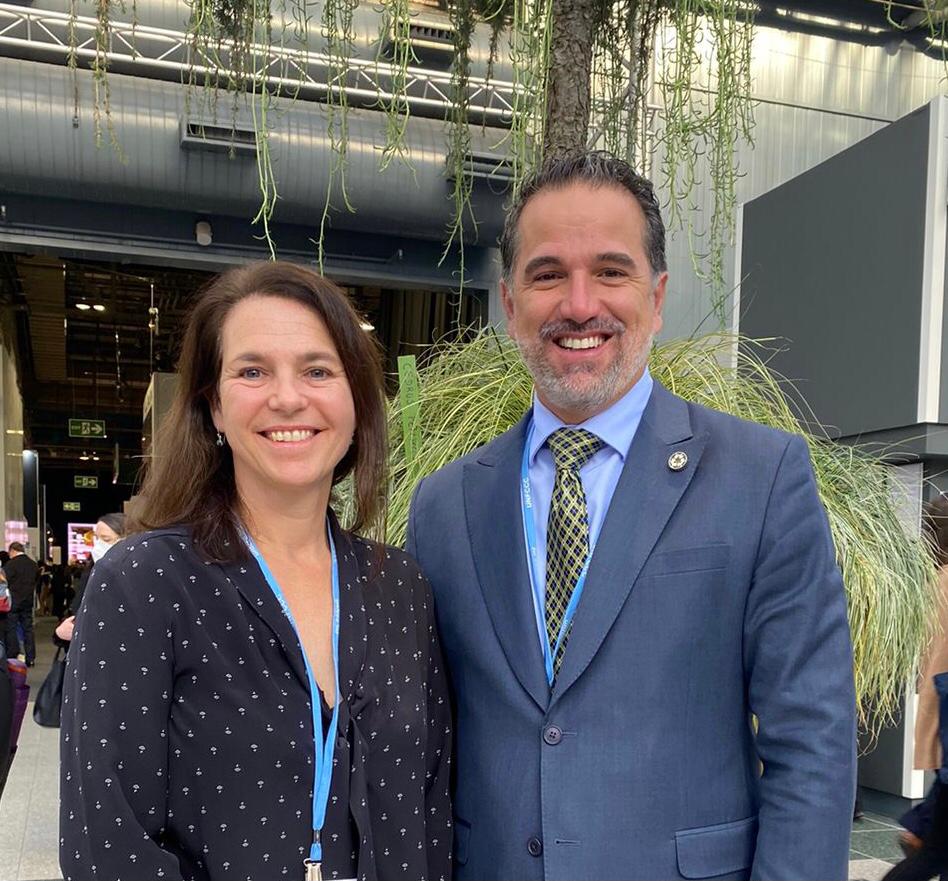
Sharon meeting Ecuadorian Environment Minister, Gustavo Manrique, at COP26
However, the policing of this new protected area is not just an Ecuadorian issue, it will take an international effort – from finance mechanisms that are being negotiated to dialogue with the international fishing fleets that currently threaten the wildlife of the Eastern Tropical Pacific. China didn’t attend COP26, which is a huge shame. This sends a message of a lack of urgency and an agenda to maintain the status quo which does not bode well for the impacts that their fishing activity may have on marine species as they leave the protected waters around Galapagos.
Another issue is plastic waste. In order to realise its full potential as a carbon sink, the ocean needs to be clean and healthy, and plastic pollution is inhibiting this. One of the main perpetrators of waste is the industrial fishing industry, whilst only a small amount (less than 10%) comes from the Islands themselves. We were on a course to turn the tide of plastic pollution in Galapagos, but due to the UK ODA funding cuts, our GCRF grant was reduced, which set our activities back.
Time isn’t on our side. Whilst we get our programme back on track, billions of people, including those from ‘big ocean states’ are already feeling the effects of sea rises and water temperature increases in their daily lives. And this will impact those living on Galapagos too.
Nature is essential for mitigating against climate change. Last week, the World Bank stated that 37% of negative climate change impacts are being alleviated by nature-based solutions. Oceans are core to that and it was most welcome to see oceans as a focus for the first time at COP26. By concentrating on nature-based solutions and ensuring voices of local Galapaguenians are heard, we can help protect the Galapagos Islands against the impact of climate change.
The frustration of young people was clearly evident, with large protests gathering over the weekend and yesterday, gender was the theme of the day. Looking at the list of world leaders whilst queuing one day, I noted only five out of 56 leaders were women! GCT has always championed female scientists and other women’s groups in Galapagos, but we must all do better – women and minority groups are still underrepresented at the top climate table – and they are the ones who are the most vulnerable to climate impacts.
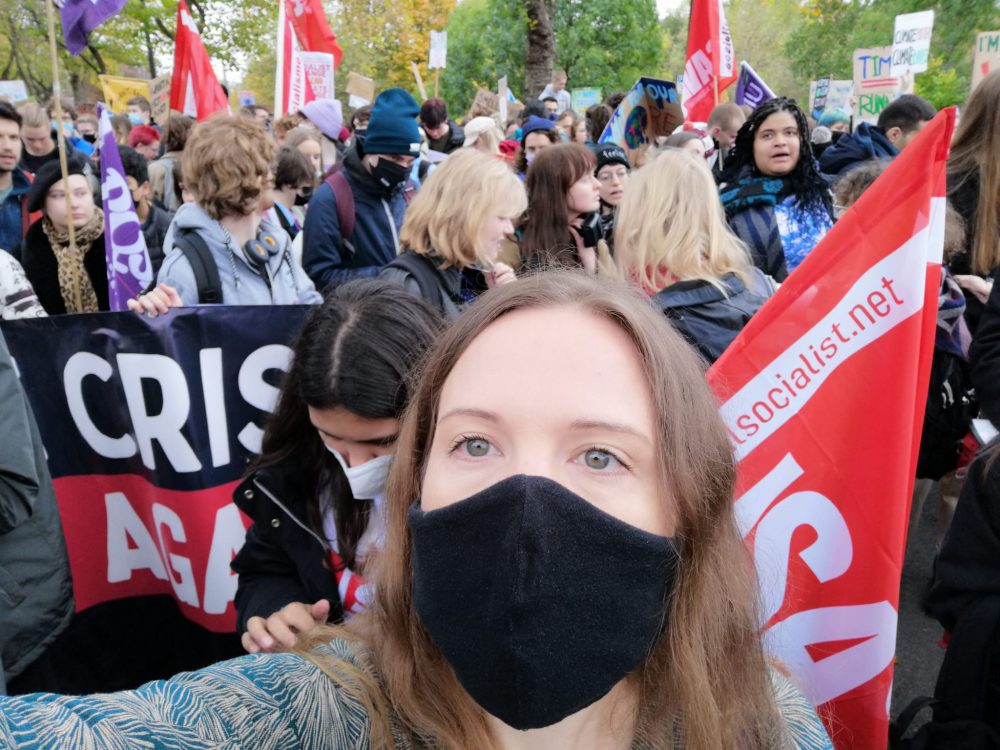
GCT’s Jen Jones at COP26 youth protest
I went through last week, riding waves of optimism and despair. I heard loud and clear that it would be possible to reduce global temperature rises to 1.5oC, but only with big bold actions that cut global emissions, protect nature, and if we take swift action collectively. We must do this to tackle the climate emergency and ensure a more peaceful, healthy and stable world that will benefit us all.
I want to take this opportunity to thank everyone who has supported our efforts to attend COP, and particularly those that offered us free accommodation in Glasgow, including Colin and Valerie who my colleague Kelly, Sarah Darwin and I stayed with. We were overwhelmed by the warmth of our supporters and appreciate everything that you are doing to help us in the fight against climate change.
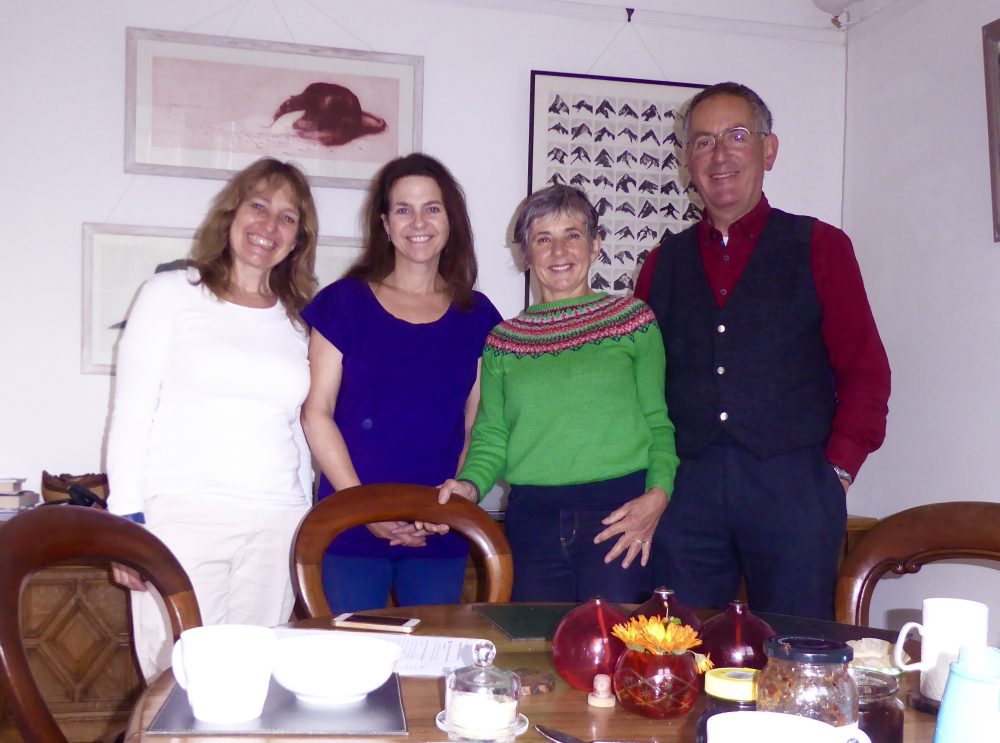
Kelly and Sharon with Valerie and Colin in Glasgow
Get involved
If you would like to help us mitigate the effects of climate change in Galapagos, helping to protect its unique wildlife and people’s livelihoods, please donate to GCT today!
Related articles

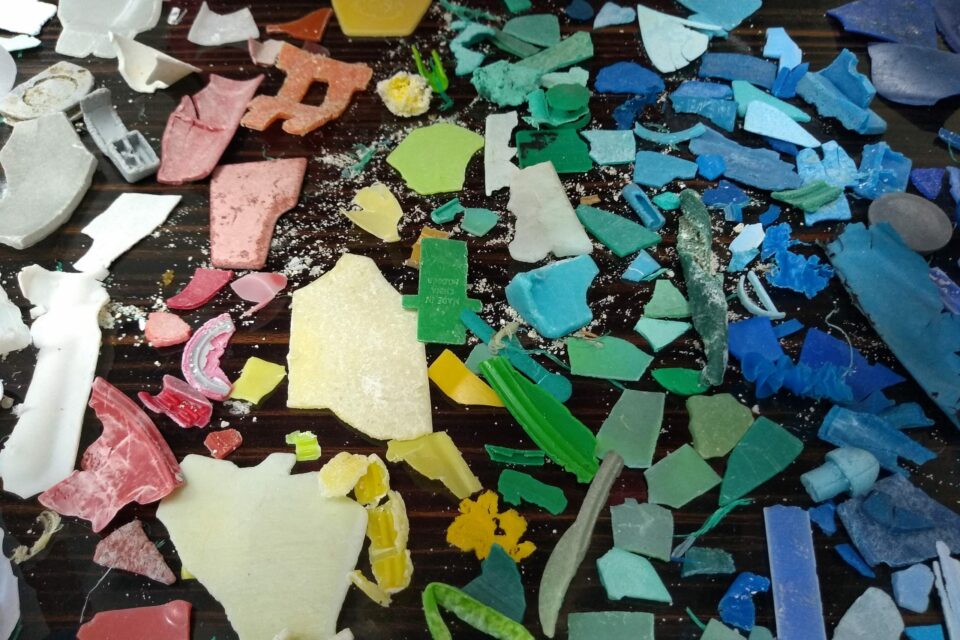
Climate change and plastic pollution: the inextricable link
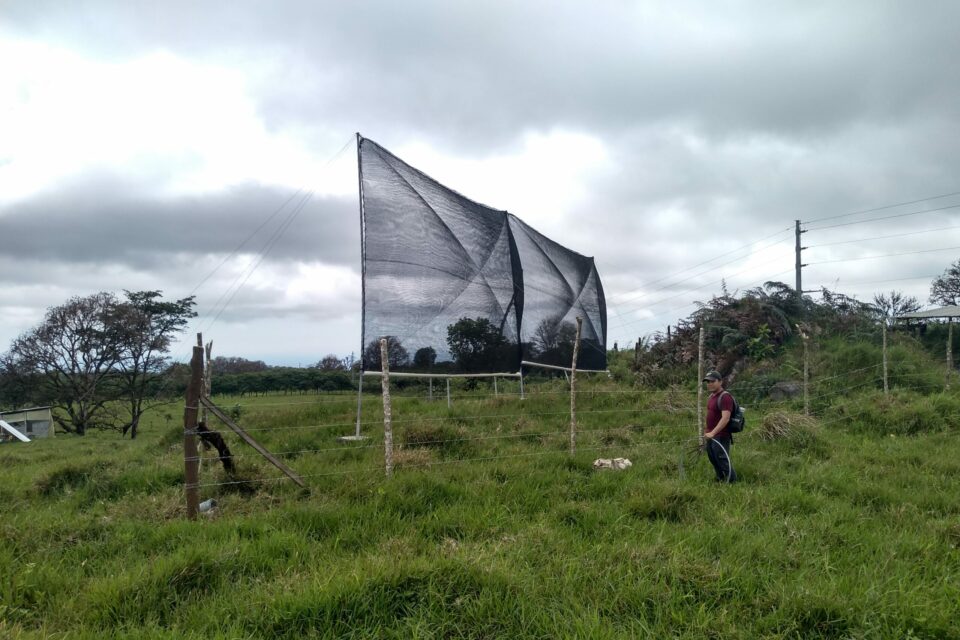
Santa Cruz: The Evolution of the Agricultural Zone


